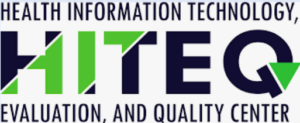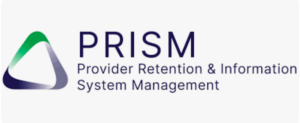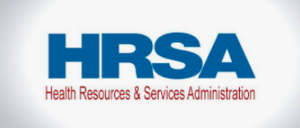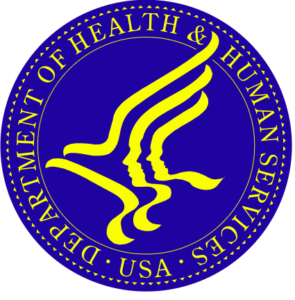- CMS: Medicare Program; Implementation of Prior Authorization for Select Services for the Wasteful and Inappropriate Services Reduction (WISeR) Model
- Public Inspection: CMS: Medicare Program: Implementation of Prior Authorization for Select Services for the Wasteful and Inappropriate Services Reduction Model
- CMS: Secretarial Comments on the CBE's (Battelle Memorial Institute) 2024 Activities: Report to Congress and the Secretary of the Department of Health and Human Services
- HHS: Patient Protection and Affordable Care Act: Marketplace Integrity and Affordability
- HRSA Announces Action to Lower Out-of-Pocket Costs for Life-Saving Medications at Health Centers Nationwide
- Public Inspection: HHS: Patient Protection and Affordable Care Act: Marketplace Integrity and Affordability
- Increased Risk of Cyber Threats Against Healthcare and Public Health Sector
- Eight Hospitals Selected for First Cohort of Rural Hospital Stabilization Program
- Announcing the 2030 Census Disclosure Avoidance Research Program
- CMS: Medicare Program; Hospital Inpatient Prospective Payment Systems for Acute Care Hospitals and the Long-Term Care Hospital Prospective Payment System and Policy Changes and Fiscal Year 2026 Rates; Requirements for Quality Programs; and Other Policy Changes; Correction
- CMS: Medicare Program; Hospital Inpatient Prospective Payment Systems for Acute Care Hospitals and the Long-Term Care Hospital Prospective Payment System and Policy Changes and Fiscal Year 2026 Rates; Requirements for Quality Programs; and Other Policy Changes; Correction
- CMS: Medicare and Medicaid Programs; Contract Year 2026 Policy and Technical Changes to the Medicare Advantage Program, Medicare Prescription Drug Benefit Program, Medicare Cost Plan Program, and Programs of All-Inclusive Care for the Elderly; Correction
- CMS: Medicare and Medicaid Programs; Contract Year 2026 Policy and Technical Changes to the Medicare Advantage Program, Medicare Prescription Drug Benefit Program, Medicare Cost Plan Program, and Programs of All-Inclusive Care for the Elderly; Correction
- CMS: Medicare Program; Prospective Payment System and Consolidated Billing for Skilled Nursing Facilities; Updates to the Quality Reporting Program for Federal Fiscal Year 2026
- CMS: Medicare Program; FY 2026 Hospice Wage Index and Payment Rate Update and Hospice Quality Reporting Program Requirements
Clinical Quality Measures for Eligible Professionals: 2024 Update Released

A new spreadsheet developed by the HITEQ Center provides a crosswalk of Clinical Quality Measures and their electronic specifications as defined in the 2023 update for Eligible Professionals (Clinicians). Fields include the crosswalk of measures with related information about CMS, NQF, and CMS Quality or MIPS ID, and Telehealth Eligibility, as well as inclusion in HRSA BPHC Uniform Data System (UDS) CY2024, Million Hearts, CMS Quality Payment Program (QPP) – APM Performance Pathway (APP) Measures, 2024 APM Performance Pathway: CMS Web Interface Measure Benchmarks for CMS ACO Shared Savings Program, CMS Core Set (Child Core Set Medicaid / CHIP): HEDIS Specified, CMS Core Set (Adult Core Set Medicaid): HEDIS Specified, Core Quality Measures Collaborative (ACO / Primary Care). Links are included throughout. Download the spreadsheet here.
Medicare Telehealth Legislation Takes Another Step Forward

Last week, the House Energy & Commerce Health Subcommittee advanced a two-year extension of Medicare telehealth payment policies to the full Energy & Commerce Committee. The bill, H.R. 7623, the Telehealth Modernization Act of 2024, includes a two-year extension of current policies and would also ensure that Medicare reimburses telehealth visits at the same rate as in-person visits. This payment parity language, along with the rest of the policy extensions, passed the subcommittee by a 21-0 bipartisan vote. The full Committee will consider the bill in the coming months.
New Study Provides Summary on Rural Behavioral Health Workforce Retention

According to a new study by the Provider Retention and Information System Management (PRISM), behavioral health professionals who had an experience with rural health care during their training are more likely to work and stay in rural areas when they enter practice. PRISM’s Behavioral Health study that was published by The Journal of Rural Health is now available here. This study assesses the amount of exposure to care in rural underserved communities that behavioral health clinicians received during training and how it impacted their success and retention in rural safety net practices.
America is Experiencing More than a Red-Blue Divide

If you’re serving multi-generations like most Community Health Centers are, you’ll want to look at the charts in Washington strategist Bruce Mehlman’s Six-Chart Sunday newsletter. The infographics highlight some startling differences between older and younger generations across an array of topics, including values, economics, party identification, and happiness.
Appeals Court Approves Drugmakers’ Federal 340B Contract Pharmacy Restrictions
 On May 21, the Federal Appeals Court ruled that the 340B statute doesn’t prohibit drugmakers from placing any conditions on distribution of 340B drugs to covered entities. However, the ruling left open the possibility that more stringent conditions by drugmakers could be illegal. NACHC is analyzing the appeal and its impact on FQHCs. Click here to read the appeal.
On May 21, the Federal Appeals Court ruled that the 340B statute doesn’t prohibit drugmakers from placing any conditions on distribution of 340B drugs to covered entities. However, the ruling left open the possibility that more stringent conditions by drugmakers could be illegal. NACHC is analyzing the appeal and its impact on FQHCs. Click here to read the appeal.
HRSA Regional Office Offers Free Presentation on Securing Federal Grants
 The U.S. Department of Health and Human Services (HHS), Health Resources and Services Administration (HRSA), Region 3 Office, will present key steps and resources for seeking federal grants. Attendees will have a chance to learn about identifying HRSA grant opportunities, navigating the grant application process, and accessing technical assistance resources. In addition, the session will include tips from a current HRSA grantee and details on how to become a HRSA grant reviewer. Individuals at all levels of experience, from those considering a first grant submission to those with prior grant writing experience, are welcome. PLEASE NOTE: The registration site also includes the full grant writing series, Ready! Set! Write! Grant Writing from A to Z. Scroll down the page to register for the free federal session scheduled for Tuesday, June 4, 9:30–11:00 am. Click here to register!
The U.S. Department of Health and Human Services (HHS), Health Resources and Services Administration (HRSA), Region 3 Office, will present key steps and resources for seeking federal grants. Attendees will have a chance to learn about identifying HRSA grant opportunities, navigating the grant application process, and accessing technical assistance resources. In addition, the session will include tips from a current HRSA grantee and details on how to become a HRSA grant reviewer. Individuals at all levels of experience, from those considering a first grant submission to those with prior grant writing experience, are welcome. PLEASE NOTE: The registration site also includes the full grant writing series, Ready! Set! Write! Grant Writing from A to Z. Scroll down the page to register for the free federal session scheduled for Tuesday, June 4, 9:30–11:00 am. Click here to register!
Federal Poverty Income Guidelines for 2024 Released
 The Department of Human Services (DHS) has announced implementation in Pennsylvania of the 2024 Federal Poverty Income Guidelines (FPIG), which were issued by the Department of Health and Human Services (HHS) on Jan. 17, 2024. The FPIGs are the basis for FQHC sliding fees and the income eligibility limits for several categories of Medicaid whose regulations are published in 55 Pa. Code (relating to human services) and administered by the PA Department of Human Services. Click here to read the notice in the PA Bulletin.
The Department of Human Services (DHS) has announced implementation in Pennsylvania of the 2024 Federal Poverty Income Guidelines (FPIG), which were issued by the Department of Health and Human Services (HHS) on Jan. 17, 2024. The FPIGs are the basis for FQHC sliding fees and the income eligibility limits for several categories of Medicaid whose regulations are published in 55 Pa. Code (relating to human services) and administered by the PA Department of Human Services. Click here to read the notice in the PA Bulletin.
Senate Finance Committee Holds Hearing on Addressing SUD and Behavioral Health
 On Thursday morning, the Senate Finance Committee held a hearing: “Front Lines of the Fentanyl Crisis: Supporting Communities and Combating Addiction through Prevention and Treatment.” This was a great opportunity to highlight for Senators the great work that health centers are doing in behavioral health. PACHC sent background information on the impactful work being done by Pennsylvania’s FQHCs to Senator Casey, who is a member of the Committee. Dr. Abigail Herron, who works for an FQHC in New York state, testified at the hearing.
On Thursday morning, the Senate Finance Committee held a hearing: “Front Lines of the Fentanyl Crisis: Supporting Communities and Combating Addiction through Prevention and Treatment.” This was a great opportunity to highlight for Senators the great work that health centers are doing in behavioral health. PACHC sent background information on the impactful work being done by Pennsylvania’s FQHCs to Senator Casey, who is a member of the Committee. Dr. Abigail Herron, who works for an FQHC in New York state, testified at the hearing.
Hospitals Forced to Revamp Business Models or Risk Losing Patients
From Axios
Hospitals’ business models are being upended by fundamental changes within the health care system, including one that presents a pretty existential challenge: People have far more options to get their care elsewhere these days.
Why it matters: Health systems’ responses to major demographic, social and technological change have been controversial among policymakers and economists concerned about the impact on costs and competition.
- Communities depend on having at least some emergency services available, making the survival of hospitals’ core services crucial.
- But without adaptation — which is already underway in some cases — hospitals may be facing deep red balance sheets in the not-too-distant future, leading to facility closures and shuttered services.
The big picture: Many hospitals have recovered from the sector’s post-pandemic financial slump, which was driven primarily by staffing costs and inflation. But systemic, long-term trends will continue to challenge their traditional business model.
- Many of the services that are shifting toward outpatient settings — like oncology, diagnostics and orthopedic care — are the ones that typically make hospitals the most money and effectively subsidize less profitable departments.
- When hospitals lose these higher-margin services, “you’re starving the system that needs profits to provide services that we all might need, but particularly uninsured or underinsured people might need,” said UCLA professor Jill Horwitz.
And hospitals have long claimed that much higher commercial insurance rates make up for what they say are inadequate government rates.
- But as the population ages and moves out of employer-sponsored health plans, fewer people will have commercial insurance, forcing hospitals to either cut costs or find new sources of revenue.
By the numbers: Consulting firms are projecting a bleak decade for health systems.
- Oliver Wyman recently predicted that under the status quo, hospitals will need to reduce their expenses by 15-20% by 2030 “to stay viable.”
- Boston Consulting Group last year projected that health systems’ annual financial shortfall will total more than $200 billion by 2027, and their operating margins will have dropped by 10 percentage points.
- To break even in 2027, a “typical” health system would need payment rate increases of between 5-8% annually — twice the rate growth over the last decade, according to BCG. If the load is borne solely by private insurers, hospitals will need a 10-16% year-over-year increase.
Between the lines: This is the lens through which to view health systems’ spree of mergers and acquisitions, which have increasingly drawn criticism from policymakers, regulators and economists as being anticompetitive.
- For better or worse, when hospitals have a larger market share, they are in a better position to negotiate and bring in more patients, and they can dilute some of the financial pain of poorer-performing facilities.
- And when they acquire physician practices or other outpatient clinics, they’re still getting paid for delivering care even when patients aren’t receiving it in a traditional hospital setting.
- “I think the hospitals have sort of said … ‘We can keep doing things the same way and we can just merge and get higher markups,'” said Yale economist Zack Cooper. “That push to consolidate is saying, ‘Let’s not move forward, let’s dig in.'”
Yes, but: A big bonus of outpatient care is that it’s supposed to be cheaper. But when hospitals charge more for care than an independent physician’s office would have, or they tack on facility fees, costs don’t go down.
The other side: Hospitals are typically on the losing end of negotiations with insurers right now, thanks to how large insurers have become, and are “in an extremely difficult competitive position,” said Ken Kaufman, co-founder of consulting agency Kaufman Hall.
- Criticizing their mergers and acquisitions as anticompetitive is a “complete misunderstanding of the situation,” he said, and moving toward a new care model will take “an incredible amount of resources.”
Reality check: Hospitals account for 30% of the country’s massive health spending tab, and they’ll have to be at the forefront of any real efforts to contain costs.
- They’re also anchors in their communities and are powerful lobbyists, which helps explain why Congress has struggled to modestly reduce what Medicare pays hospital outpatient departments.
- And there’s a growing body of research showing that when hospitals consolidate, costs go up.”They’ve protected their portfolio, and that’s added to the cost of health care,” said Johns Hopkins professor Gerard Anderson.
New PRISM Resource! Preparing Behavioral Health Clinicians for Success and Retention in Rural Safety Net Practices

This study assesses how, among behavioral health clinicians working in rural safety net practices, the amount of exposure to care in rural underserved communities received during training relates to confidence in skills important in their work settings, successes in jobs and communities, and anticipated retention. The summary provides a quick overview of the study published in the Journal of Rural Health.
About PRISM
PRISM is a collaborative of State Primary Care Offices, Offices of Rural Health, Area Health Education Centers and other organizations that have partnered to collect data to identify and document outcomes to enhance the retention of clinicians. Through its design, this collaborative approach builds shared interest, cooperation and group wisdom in best practices to promote retention among the states.
PRISM provides a standardized and state-of-the-art way for states to gather real-time data from clinicians as they serve in States’ and the National Health Service Corps’ (NHSC) loan repayment, scholarship and other incentive programs. This retention data gathering system routinely surveys clinicians as they serve in these public programs to provide quality, consistent, real-time, convenient and ongoing data to inform the management and retention of clinicians in service programs.
PRISM is a complex, longitudinal data gathering system that incorporates the data collection, analysis and dissemination expertise of the Cecil G. Sheps Center for Health Services Research. State offices can easily enter, track and manage retention questionnaires.
PRISM training and technical assistance is provided by 3RNET, supported through a contract with the National Rural Health Association with funds from the US Health Resources and Services Administration (HRSA). State collaborative members pay an annual fee to support enhancements to PRISM.
For more information contact Jackie Fannell
